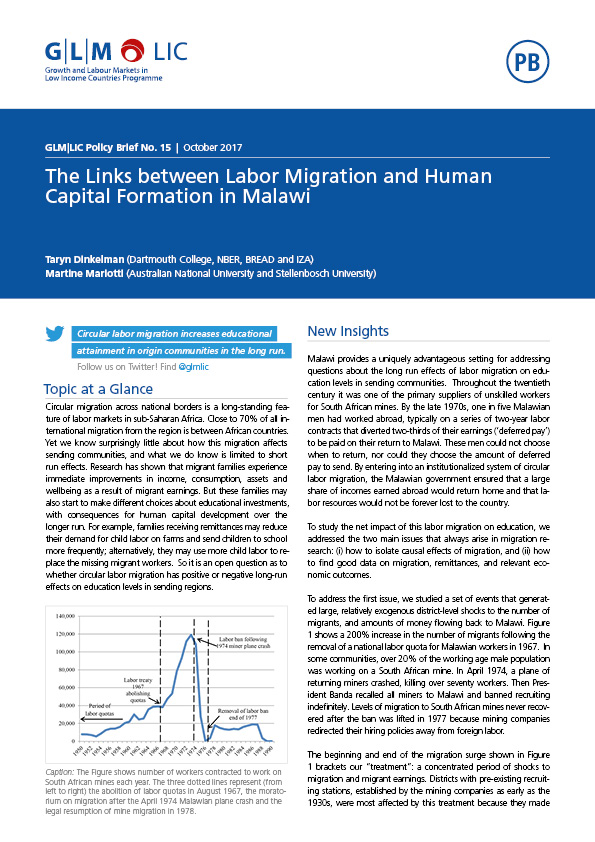Circular migration across national borders is a long-standing feature of labor markets in sub-Saharan Africa. Close to 70% of all international migration from the region is between African countries. Yet we know surprisingly little about how this migration affects sending communities, and what we do know is limited to short run effects. Research has shown that migrant families experience immediate improvements in income, consumption, assets and wellbeing as a result of migrant earnings. But these families may also start to make different choices about educational investments, with consequences for human capital development over the longer run. For example, families receiving remittances may reduce their demand for child labor on farms and send children to school more frequently; alternatively, they may use more child labor to replace the missing migrant workers. So it is an open question as to whether circular labor migration has positive or negative long-run effects on education levels in sending regions.
